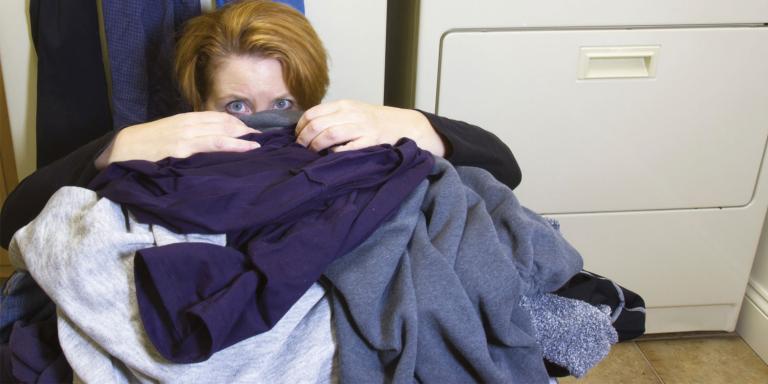Question: How can you get your clothes “clean” if the laundry soap you use is “dirty,” full of extraneous stuff—fragrances, chemicals, and fabric softeners, ad nauseum?
Answer: You can’t.
Commercial claims of “clean, fresh scents” are usually produced by toxic quaternary ammonium compounds (“quats”), chemicals thought to cause asthma in otherwise healthy people and to be prone to producing antibiotic-resistant superbugs, says Rebecca Sutton, PhD, senior scientist for the Environmental Working Group.
A few common sense tips can help you clean up your laundry habits—and safeguard your health.
- Avoid laundry cleaning agents that list “surfactants” as part of their ingredients. Surfactants aren’t a specific ingredient; rather, they’re a chemical wetting agent that helps water penetrate fabric. Unfortunately, surfactants tend to release benzene (a toxin thought to be associated with cancer and reproductive disorders) into the environment.
- Buy organic laundry soaps, which are naturally free of phosphates. Phosphates, a known water pollutant, kill plants and fish and throw the ecosystem off-kilter.
- If it contains petrochemicals, chlorine, sulfates, or parabens—pass. These are all things you don’t want coming in contact with skin or leaching into the environment during the rinse cycle.
- Look for concentrated cleaners. Typically, concentrates require less product and come in smaller packaging; that means a smaller impact on landfills or recycling facilities.
- Instead of chemical-filled fabric softeners, add 1/2 cup of white vinegar to each load during the rinse cycle; it’s a natural softener.
- You want your clothes to smell fresh and clean? When the weather permits, skip the dryer and hang the wash on the line outside.

